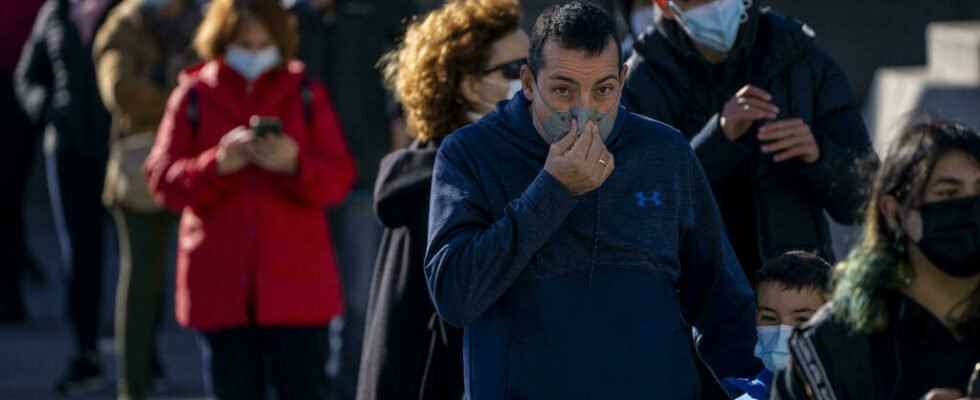After much procrastination, the socialist government of Pedro Sanchez has decided to regulate the price of antigenic tests. The news is greeted as positive by the pharmaceutical sector, consumer associations and political parties. Even if everyone thinks it is late. A test in Spain costs between 4 and 12 euros, compared to 2 euros in France or Portugal.
From our correspondent in Madrid,
The people of Madrid have not forgotten these end-of-year celebrations, from Christmas to Reyes on January 6. Countless people infected with the virus, and just as many people in doubt as to whether they were infected or not, and unable to get tested. Quite simply because of a general shortage of supplies, nationwide.
Belen, a pharmacist in central Madrid, says she is relieved to receive these antigenic tests again. She says she sells around 25 a day at 7.90 euros each. “It’s a question of distribution. Distributors put tests at the prices they want, and here the prices are always over-the-counter. Here it is more expensive. We in the pharmacy, we bought them for up to 5 euros and more», Explains the pharmacist.
► See also: Spain: Catalan pharmacies authorized to validate self-tests without even seeing the results
Self-tests finally accessible for a majority of people
We are delighted that the price of antigenic tests will finally be regulated, which will allow the vast majority to apply this self-test for any family, social or cultural act. This will also help calm the spirits in general about the health situation.
Jaime, director of an insurance agency, is convinced of this. “The situation prompts us to worry. But it also shows us that this new variant is much less aggressive. The vast majority of the population is vaccinated, even with all three doses. Those who get infected mostly suffer from a bad cold, sometimes from a headache, and in two days everything is better, but it is true that there is a general concern.», He emphasizes.
A sixth wave stronger than expected
The situation is however something to frighten a little. Only a month ago, the 15-day incidence rate was only 500 per 100,000 inhabitants, compared to 3,000 today, with a record close to 5,000 in Navarre, in the north of the country. The sixth wave is stronger than we thought. And, from an official source, five of the 17 regions have seen all the hospitalization records since the start of the pandemic shattered.
However, Nieves, a doctor in the public who has just retired, is not very worried. “If the number of cases and contagions increases so much, it is normal to notice a saturation in hospitals and care centers. It’s a pure question of quantity, not so much the severity of the virusSays Nieves.
But the state of public health is much more worrying
In reality, Nieves and so many others are more concerned with the state of Public Health. Insufficient staff, anxiety, depression galore. Thousands of caregivers are absent, sick or gone on early retirement.
Nieves is sorry. “When I was working, we already had a deficit in terms of human resources. I was a primary care doctor, and we were in pain. Taking care of a lot in a short time, and there was very little. “
The government of Pedro Sanchez has promised to increase the budget, without saying by how much or by when, in particular to recruit more caregivers in health centers and hospitals.
